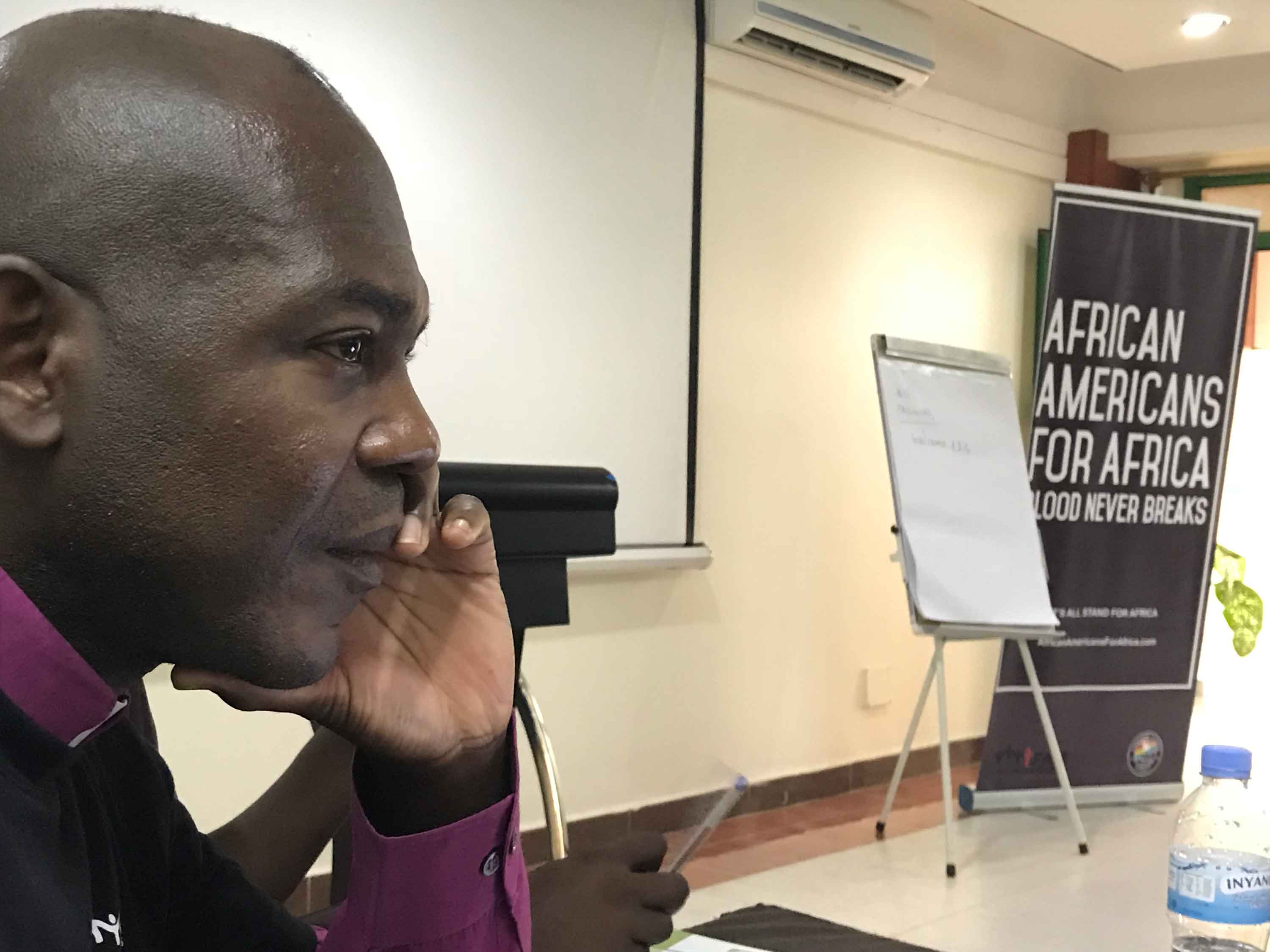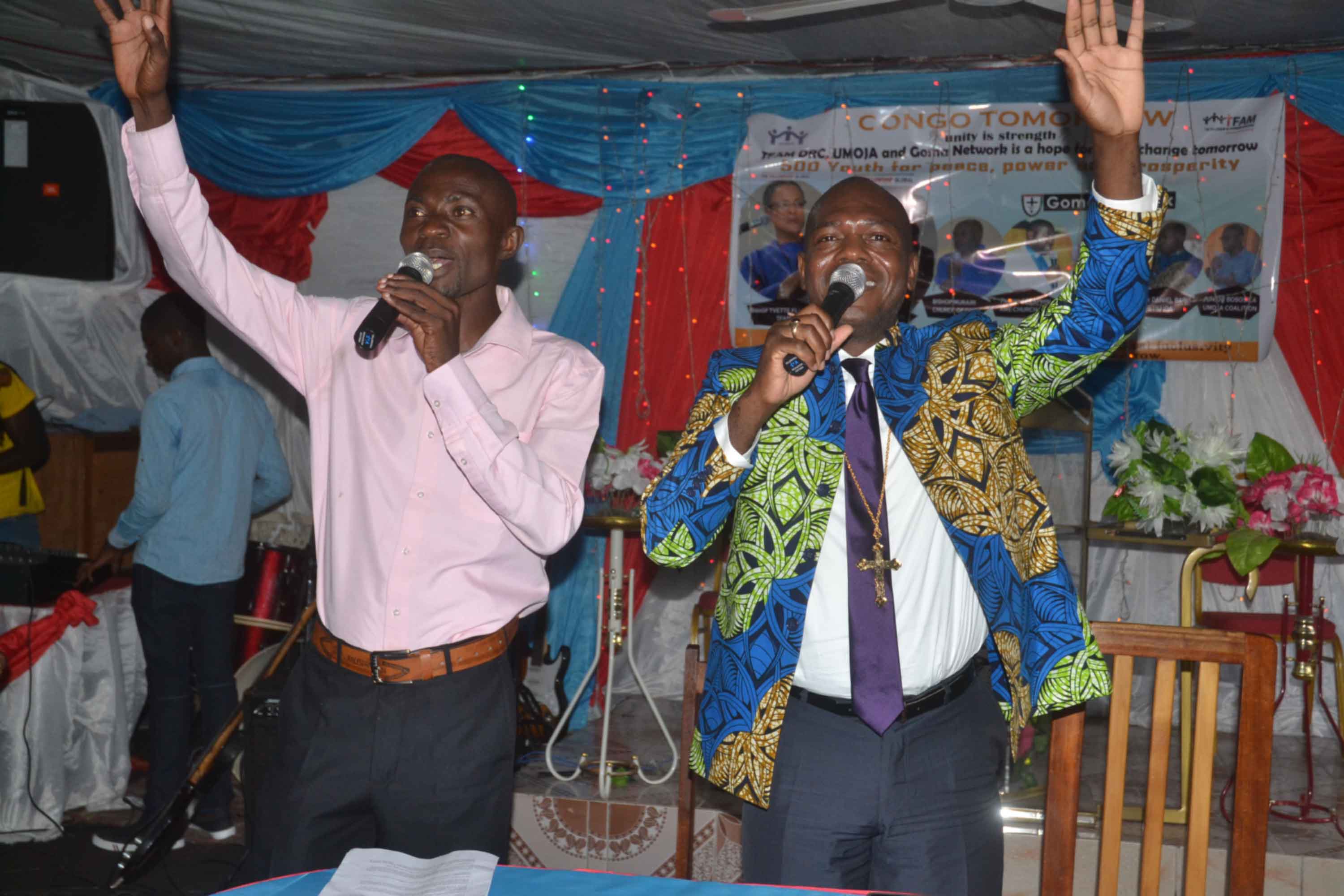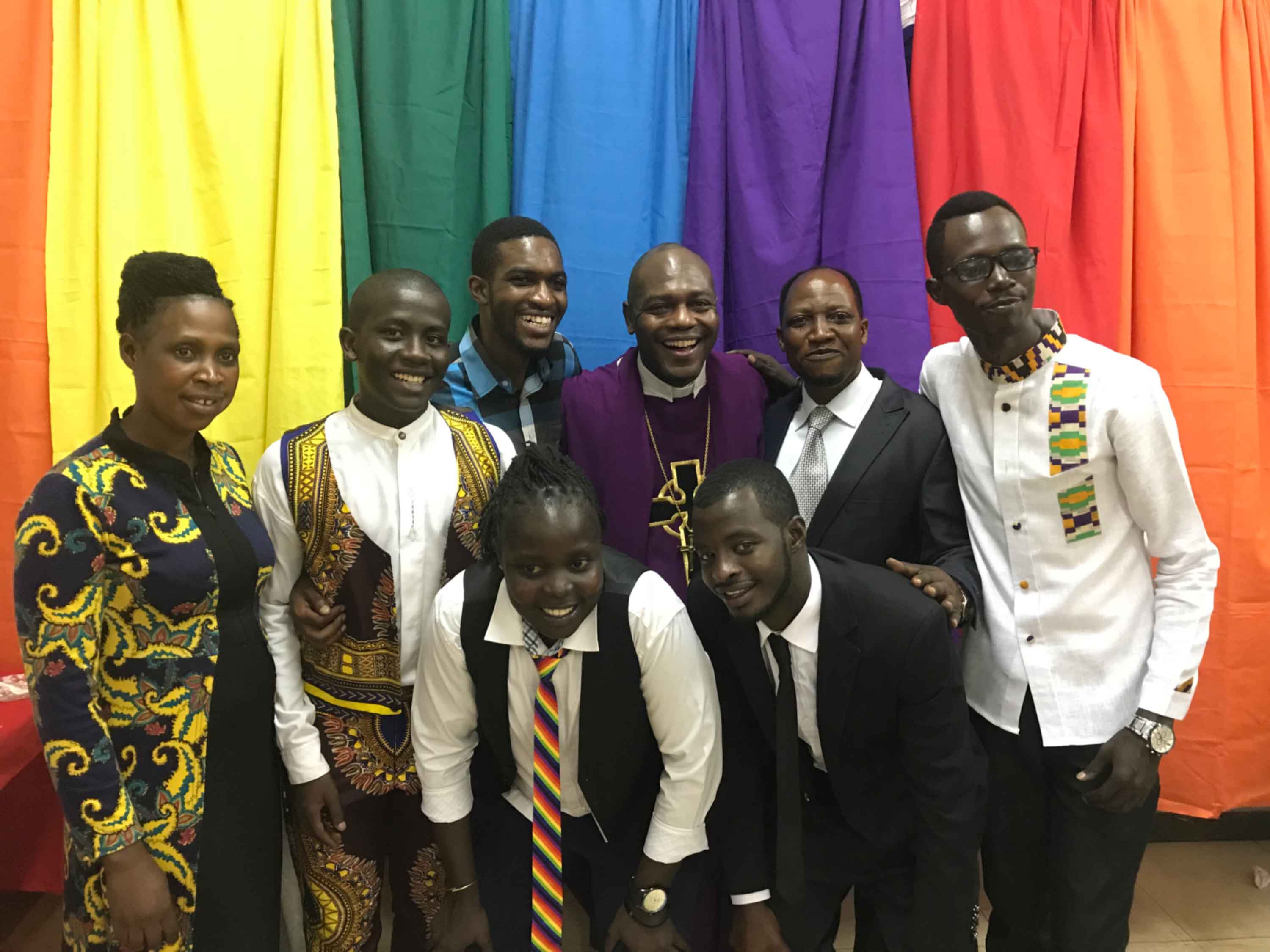Getting Interconnected: Time Out Awardee Bishop Joseph Tolton ’89The 2021 grant recipient plans to infuse activist energy into the Pan-African movement…starting with youth leaders.
Getting Interconnected: Time Out Awardee Bishop Joseph Tolton ’89The 2021 grant recipient plans to infuse activist energy into the Pan-African movement…starting with youth leaders.
Last summer, as people took to the streets to protest racism in the United States, Bishop Joseph Tolton ’89 saw an opportunity to unite people across continents. People in the U.S. had come together to tell their story in the hopes of changing policy on the domestic front. He thought: What if members of the African diaspora around the world united to do the same on the global front?

So Tolton, who was consecrated as a bishop and is based in New York City, moved forward with Interconnected Justice. He describes it as “a global platform which connects Africans on the continent and Afro-descendants throughout the diaspora for the purpose of a process of reclamation.” He sees the effort as 400 years in the making, and coming at a time when, thanks to Zoom and other technology, it has become easier to make these connections.
Tolton will be moving forward with Interconnected Justice as the 2021 recipient of Vassar’s Time Out Grant. He plans to use the grant, which is for alumnae/i to take a year off to work on a project to help change the world, to start the Pan African Young Adult Leadership Program. The program will bring together 21 activists from Uganda, Rwanda, the Congo, Sierra Leone, Côte d’Ivoire, Haiti, Brazil, Mexico, and the U.S to build the strategic plan for fully launching Interconnected Justice in 2022. As the grant selection committee said in an April announcement, “Joseph will design the program, provide mentorship, and work with the activists to promote a 21st century global Pan-African movement.”
“I am honored that Vassar has afforded me the opportunity to begin a project in Pan-African advocacy that I believe will be a gift to people of African descent globally,” Tolton says. “It was at Vassar that I became not only incredibly curious about the world, but also about myself. It is most appropriate that Vassar is now providing an open door for me to give back to the world as so much has been given to me.”

As part of the leadership program, the activists will produce news stories and op-ed videos about events in diaspora countries and work on social media campaigns to promote the Pan-African movement, according to Tolton’s plans. They’ll also produce monthly youth summits. Tolton plans to offer participants workshops on nonprofit skills like philanthropy and marketing, and on Pan-African history and other topics. At the end of the program, the young leaders will be able to stay on with Interconnected Justice or take their new skills elsewhere.
Interconnected Justice builds on Tolton’s previous work. In 2006, after a career in marketing and advertising and getting an MBA from Columbia Business School, he started a ministry. He founded Rehoboth Temple Christ Conscious Church, in the Harlem section of Manhattan, where Tolton grew up. As an openly gay pastor, he wanted the church to serve the LGBTI community. After his church merged with another in 2012, The New York Times called it “a rare haven for gay men and lesbians in Harlem.” The church joined the Fellowship of Affirming Ministries, a network of primarily African American clergy and churches that advocate against discrimination. (Tolton is now executive director of its international outreach arm.)
In 2010, Tolton visited Uganda to fight anti-gay legislation there. The visit changed his life. When he returned to the U.S., he wanted to help more people connect with Africa as he had. “As I connected the dots, it was clear to me that being in Africa was bigger than just the work of being an LGBTI rights activist,” he says. “I was a son of the soil who was coming home, and by coming home I had an opportunity to build a bridge connecting the African American community and the African community.” He then spent a decade on efforts to build that bridge, including by speaking at a U.S. Department of State briefing at the United Nations in 2016.

Now with Interconnected Justice, a secular effort outside of his bishop role, Tolton is putting together what he calls a “blueprint” for a formal launch as a nonprofit. The effort so far has involved hosting bimonthly Zoom sessions with young people from at least nine countries, which he plans to continue with the help of the Pan African Young Adult Leadership Program activists.
During the two-hour sessions, the young people are “exchanging ideas, they are telling each other their stories, they are communicating about the things they have in common, they are planning ways for them to connect and work together in the future,” Tolton says. “They are going through that process of reclamation.” He calls the series the Wakanda Project, a reference to the fictional African country in Black Panther.
Friends who have known Tolton since Vassar, where the former religion major has returned to give talks, say this work of connecting people is perfectly suited to him. “He has just a terrific vibe, a great energy, he’s very positive, and you just want to be around him,” says Elaine Cook ’89. Cook recently invited Tolton to speak at her church and give his “incredible perspective on all of his various experiences.”
Michael Neuwirth ’89 calls Tolton “awe-inspiring.” Neuwirth invited Tolton last year to be the Class Lead on Racial Justice for the Class of 1989, of which Neuwirth is president. Neuwirth has watched the arc of his friend’s career. “All his expertise and the skills he’s developed as an entrepreneur, a faith-based person,” Neuwirth says, “he’s bringing all that together in this fascinating Pan-African-related work.”
As Tolton prepares to officially launch Interconnected Justice next year, he hopes the platform will give people a united voice and build on the energy of Black Lives Matter. “We are connecting with each other to determine who we are as people of African descent in a post-colonial, post-Jim Crow world,” he says, “now that we get to decide who we are.”